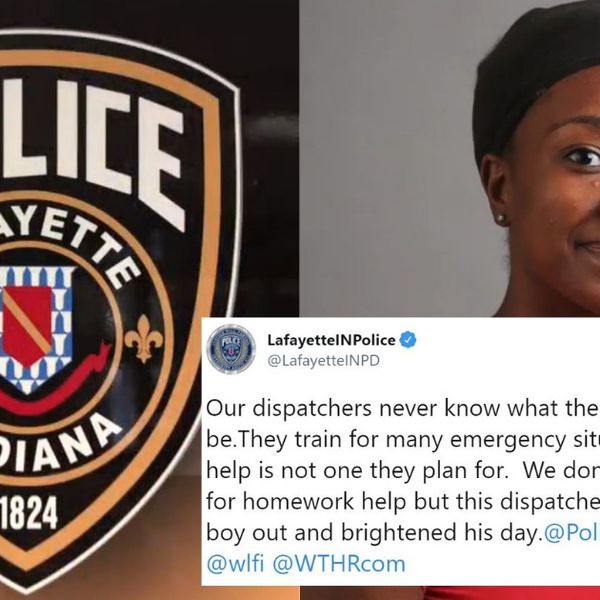July, 2002, LOS ANGELES - The loss of a parent is an inevitable part of the journey of life. Thousands experience it every day. I, too, experienced it over two decades ago with the passing of my father. Yet, the pain of the death of my mother, Fumiko Emily Takei, on May 25th was unbearably sharp. It was singular, so personal. She was my final parental link with my past, my memory of a love and determination that carried our family through the turbulence of war and its aftermath. She was bull-headed strength combined with unqualified devotion to family. In her final years, she met the challenges of the many assaults on her health with the same defiant will to overcome. She left me a legacy of love combined with strength. Now, her ashes have joined my father's in the family crypt. I take comfort in the fact that she has, at last, found peace. The expressions of sympathy and generosity from good people far and near have been a great consolation. I feel blessed and grateful for the kind support of so many friends.
About a year ago, I had enthusiastically signed a contract to star in a concert production of Stephen Sondheim's musical "Pacific Overtures" for the Human Race Theatre Company of Dayton, Ohio. The play is an infrequently produced but brilliant musical about U.S. Navy Commodore Matthew C. Perry's effort to "open up" the closed island empire of Japan in 1853. I have been a passionate Sondheim fan who thinks "Pacific Overtures" is his best work. This was a wonderful invitation from the Human Race Theatre and a great opportunity for me to stretch as an actor. But now, the calendar showed that rehearsals were to begin in Dayton just five days after my mother's final memorial service. Can I even begin to think about performing so soon?
Then, I thought of my mother's approach to the challenges in her life. She always thought of the wellbeing of her family. She may have been torn up inside, but she never let on to her children. From being forced out of our home at gun point by the U.S. Army, through incarceration behind barbed wire fences during World War II, to the struggle to rebuild our lives from skid row in downtown Los Angeles, she was always Mama, there for us, strong and loving. Through thick and thin, she was always our Mama. Whatever she may have been feeling inside, she never allowed it to impose itself on her responsibility to her family. Now, I had a responsibility to a professional family waiting for me in Dayton. At this late date, the wellbeing of that family was at stake. I resolved to myself that I would do the best that I could as an actor - and I determined that I would work with my professional family without allowing my personal situation to intrude. I had to be my mother's son.
I arrived at the Dayton airport to be welcomed by Kevin Moore, the executive director of the Human Race Theatre Company and the director of "Pacific Overtures." We immediately hit it off. I found him to be a passionate theater person, a savvy leader of the regional theater community, and an energetic artist/administrator. On the drive in from the airport, we enthusiastically discussed the production.
On the first day of rehearsals, I met the company of singer/actors that Kevin had assembled. What an extraordinary collection of talent!
 Two were from New York City with impressive New York credits, Alan Muraoka and Rich Ceraulo. Three were from Cincinnati: Michael Pincelli, Ryan Heinrich, and Juan Carlos Diaz. Actually, Juan Carlos told me he was really a San Franciscan studying at Cincinnati's College Conservatory of Music. Another member of the ensemble, Jamie Cordes, had worked with a variety of musical theater and opera companies throughout the country and had performed in such Sondheim productions as "Sweeney Todd" and "A Little Night Music." A cast member from New Jersey, Jose Solivan, had performed extensively in musical theater throughout the Northeast. Three were veteran resident artists with the Human Race Theatre: Jay Pierce, Scott Stoney and Kay Bosse. All were magnificently gifted performers and superb singers. An indispensable member of the company was our accompanist on piano, Brendan Kinsella.
Two were from New York City with impressive New York credits, Alan Muraoka and Rich Ceraulo. Three were from Cincinnati: Michael Pincelli, Ryan Heinrich, and Juan Carlos Diaz. Actually, Juan Carlos told me he was really a San Franciscan studying at Cincinnati's College Conservatory of Music. Another member of the ensemble, Jamie Cordes, had worked with a variety of musical theater and opera companies throughout the country and had performed in such Sondheim productions as "Sweeney Todd" and "A Little Night Music." A cast member from New Jersey, Jose Solivan, had performed extensively in musical theater throughout the Northeast. Three were veteran resident artists with the Human Race Theatre: Jay Pierce, Scott Stoney and Kay Bosse. All were magnificently gifted performers and superb singers. An indispensable member of the company was our accompanist on piano, Brendan Kinsella.
There I was - a singer who does his best work in the shower - surrounded by singers who perform in operas! I knew I needed help. Neal Gittelman, the music director of the production, is also the conductor of the Dayton Philharmonic Orchestra. It was my singular privilege to work with him daily as my personal vocal coach. Neal was wonderful. He was patient, creative, spontaneous and relaxed. I knew I was going to like working with him, when, from the very first day, he kicked off his shoes before we began work. He is the inspiration for my decision to continue with voice lessons back here in Los Angeles.
Kay Bosse, the only woman in this company of actors, was the anachronism of the cast. "Pacific Overtures" is always performed in classic Kabuki style, where all roles, both male and female, are played by men. In Kabuki, women performers do not exist. The art of depicting females is a specifically male domain in Kabuki, where an actor devotes his entire career to perfecting the portrayal of women through the changing stages of their life. Kay was the token female in this revolutionary Kabuki production. But in terms of talent, she was a full member of the company. She stopped the show with her number, "Chrysanthemum Tea," as the sweetly murderous mother of the Shogun. I got to play her victim - and it was histrionic good fun being poisoned by her chrysanthemum tea.
My principal role was that of the Reciter. In Kabuki, the Reciter is not only the narrator and bridge for scene transitions, but participates in the scenes as well playing many different roles. Thus I got to be Kay Bosse's poisoned Shogun. Another unique Kabuki convention is the role that the Reciter has in giving voice to the inner thoughts and emotions of other characters. There is a scene in the drama where a samurai returns home to find that his beloved wife had committed suicide. A samurai must never show his emotions - even under this tormented circumstance. He stoically swallows his pain. In Kabuki, the Reciter is the one who gives voice to his emotions. It was only in this sequence that I allowed my own pent-up grief over my mother's death full release in the anguished cry I emitted for the tormented samurai.
The production was a smashing success. Opening night was a sellout with a gala party following and the subsequent performances were near full houses.
 A surprise treat was seeing my good friend and colleague from the Star Trek movies, Robin Curtis, who played Lt. Savik. She is now living in Cincinnati and drove all the way up to Dayton with her husband for the second night performance. She came backstage to see me after the show, as sparkling as she always has been. She told me how moved she was by my cry of anguish for the grief-stricken samurai. Then she conveyed her condolences on the passing of my mother. I wonder if she had sensed her presence in that tortured wail.
A surprise treat was seeing my good friend and colleague from the Star Trek movies, Robin Curtis, who played Lt. Savik. She is now living in Cincinnati and drove all the way up to Dayton with her husband for the second night performance. She came backstage to see me after the show, as sparkling as she always has been. She told me how moved she was by my cry of anguish for the grief-stricken samurai. Then she conveyed her condolences on the passing of my mother. I wonder if she had sensed her presence in that tortured wail.
All the time that I was in Dayton, I thought of my mother. I missed her terribly. But, as she did in her life, I never let my personal sorrow intrude on my work with my professional family. When she did make her presence known, it was to help me make my stage emotion that much truer.
I had a rich and engaging experience with "Pacific Overtures" working with a company of talented artists. I appreciate the many new friends that I made in Dayton. The experience I had with the Human Race Theatre was profoundly fulfilling. All this and more are gifts that my mother's love continues to give me. I dedicate my performance in this "Pacific Overtures" to the woman whose loving strength never stops guiding my life - to my Mama.
Woman Was Fired For Refusing To Wear A Bra At Work—And Now She's Suing
Christina Schell, from Alberta, Canada, stopped wearing bras three years ago citing health reasons.
While Schell did not specify the health reasons, she did state she finds them to be "horrible."
But after her refusal to sign or adhere to a new enforced dress code policy to wear a bra or tank top under her work shirt at a golf course grill where she worked, Schell was promptly fired.
Now, the 25-year-old has filed a human rights violation against the Osoyoos Golf Club, Osoyoos, in British Columbia, Canada.
Schell said:
"I don't think any other human being should be able to dictate another person's undergarments."
When she asked the general manager, Doug Robb, why she had to comply, the manager told her the mandate was for her protection.
Robb allegedly said:
"I know what happens in golf clubs when alcohol's involved."
After losing her job, she brought the case to the British Columbia Human Rights Tribunal and told them the club's dress code was discriminatory because the rule didn't apply towards male employees.
Schell told CBC:
"It's gender-based and that's why it's a human rights issue. I have nipples and so do the men."
David Brown, an employment lawyer in Kelowna, BC, said gender-specific dress codes could be viewed as discriminatory under the BC Human Rights Code.
He stated:
"It's an interesting question as to whether or not an employer can dictate the underwear that women can wear, but they don't say anything about the underwear that men can wear, and does that create an adverse impact on the individual?"
Brown added:
"If this policy is found to be discrimination, the next question is does the employer have a bonafide occupational requirement to essentially impose this on the individual?"
"I'm kind of scratching my head as to what that occupational requirement would be."
@GlobalBC The policy is sexist the peopl supporting it are sexist. Hope she wins her complaint— Lori bell (@Lori bell) 1529692660.0
@Shelby_Thom @WoodfordCHNL @GlobalOkanagan @GlobalBC Then men should have to wear either a tank top or undershirt— caffene fiend (@caffene fiend) 1529624161.0
@SoldByBrock @Shelby_Thom @GlobalOkanagan @GlobalBC What does common courtesy have to do with wearing a bra? Breast… https://t.co/ZVI2xDdpgf— M Shumway (@M Shumway) 1529843759.0
As for the tank top option, due to working under oftentimes extreme heat serving tables outsides, Schell did not want to wear another layer of clothes just because of her gender.
Schell said:
"It was absurd. Why do you get to dictate what's underneath my clothes?"
Employment lawyer Nadia Zaman told CBC that the club can enforce a gender-specific policy as they deem necessary as long as the establishment can prove it is for the occupational safety of its workers.
But the attorney questioned if forcing female employees to wear a bra was applicable in this case.
Zaman stated:
"If they simply require that female employees wear a bra but then they don't have a similar requirement for males, and they can't really justify that … then there is a risk that their policy's going to be deemed to be discriminatory."
Under British Columbia's discrimination law, it is illegal for employers:
'to discriminate against any individual because of his race, color, religion, sex, or national origin'.
@GlobalBC @globalnews Logistically bras or the absence of does not impact health or work performance. That is my v… https://t.co/65cLHBMowf— Louisette Lanteigne (@Louisette Lanteigne) 1529769211.0
McDonald's employee Kate Gosek, 19, agrees with Schell in that the dress code is "unnecessary." She too was harassed by her employers at a McDonald's in Selkirk, Manitoba, over refusing to wear a bra.
"She just told me that I should put on a bra because, McDonald's—we are a polite restaurant and no one needs to see that."
Schell's case sparked plenty of debates on Twitter.
@DunnMan77 @GlobalBC It's just discriminatory, woman shouldn't have to wear bras if they don't want to. As well as… https://t.co/RXhRVWUuNy— Mary Johnson (@Mary Johnson) 1529685276.0
@DunnMan77 @GlobalBC Men do not have to wear underpants if they don't want to. As of right now there are no laws to… https://t.co/l8FuPVybWo— Mary Johnson (@Mary Johnson) 1529686418.0
@GlobalBC Women have the right not to be forced to wear a bra Shaving & makeup also is a choice. If you want to do… https://t.co/Ybkj6PLDnD— Lozan (@Lozan) 1529686156.0
@Lozan72 @GlobalBC I would completely understand her and your argument if we were talking about a potential law to… https://t.co/trRyNAubn4— Chris George (@Chris George) 1529690293.0
@GlobalBC This story frustrates me. There's no dress code equivalent for men? Well if I saw the outline of a male s… https://t.co/5YbAvXKRcO— Molly Max (@Molly Max) 1529705327.0
Schell is not alone in her disdain for bras.
@GlobalBC I personally HATE wearing a #bra absolutely hate it with passion and unashamed to admit it. I HATE BEING… https://t.co/GEi3LtxIDa— Lozan (@Lozan) 1529686305.0
Schell is still waiting to hear from the Human Rights Commission about her claim.
H/T - GettyImages, Twitter, Indy100, CBC











